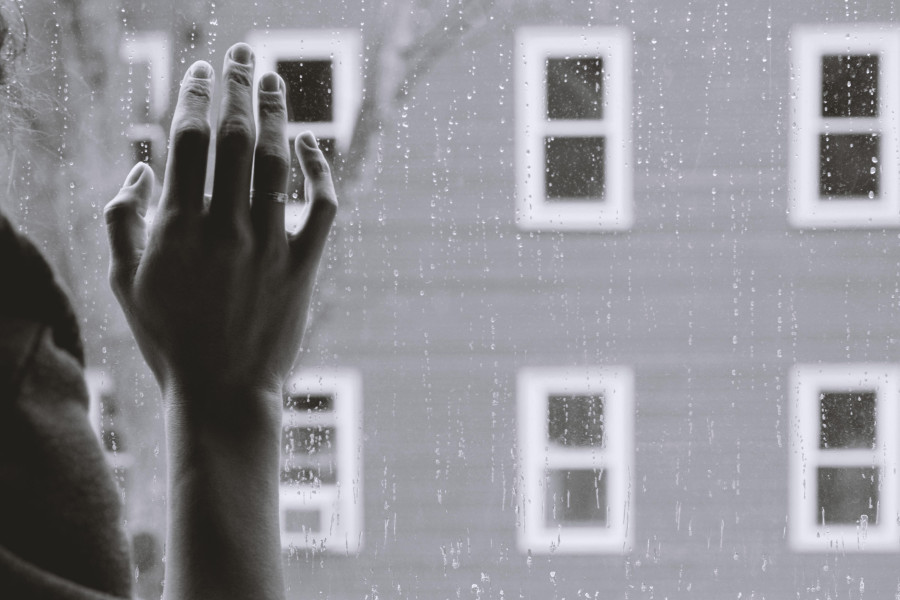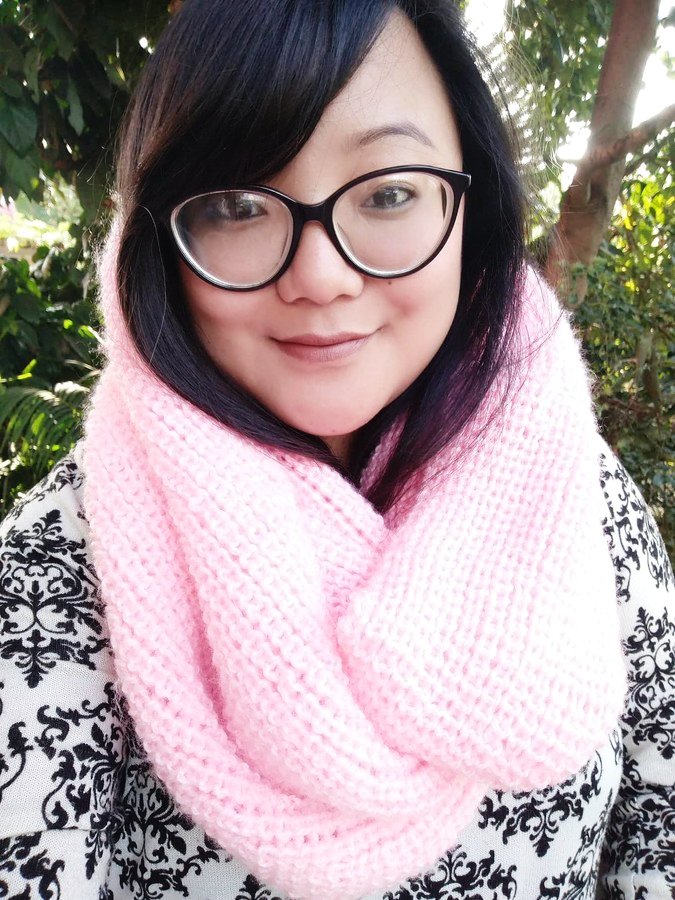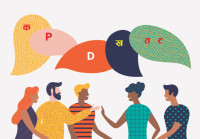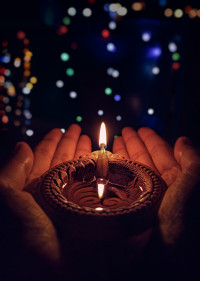As it is
How to be there for people who are grieving
A guide to what should be the proper social etiquette when meeting people in grief.
Sumina Subba
My first encounter with grief, as I remember it, crossed my path through my mother. Her forlorn expression spoke in volumes even to my young mind of a six-year-old. She had lost her partner in life, and I, my father. Obviously, I was too young to recognise, much less understand, the gravity of grief that had stricken us. More than my father’s absence or the void that was about to manifest for the rest of my life, it was her haunting silence and firm grasp as she clutched me by her side that I remembered about losing a parent.
For most of the time since then, I treated grief like a distant relative; I knew it existed, and it sometimes appeared out of nowhere, but that was that.
Little did I know that I wouldn’t be spared the same privilege when grief would come knocking once again. Within 24 hours of being admitted to the ICU, my mother lost her life. This time, I came face to face with grief in its grisly form. My mother’s firm grasp that had shielded me from the ugly reality of love and loss had perished with her. I had felt her embrace for the last 28 years of my life, and suddenly, it was gone. It was then that suddenly and brutishly, I had to comprehend the heartache of having lost both my parents.
It is true what people say: one cannot understand grief unless one has gone through it, baring one’s real, raw self. Mourning has an expiry date but grief does not. Grief comes accompanied by a vast labyrinthine of emotions of extreme anger, sadness, depression, guilt, and suicidal thoughts. I relied on my support system to navigate this ugly and complicated maze of grief. However, I have also met individuals who have frankly infuriated me with their insensitivity and inquisitiveness. It baffled me that people thought it was okay to say things that were hurtful without realising it. Of course, they were trying to offer solace, but the execution defeated the purpose entirely.
While I was experiencing a torrent of emotions and trying to accept the permanency of my mother's absence during the mourning period, I was also making a mental list of what should not have been said to me, things that seemed like the most 'normal' or 'natural' to say to a grieving person but could be done with a lot more sensitivity and grace.
Sorry not Sorry
Until the funeral of your loved one is conducted, you are most likely still trying to wrap your head around everything that has happened and your pain is still raw.
Listening to visitors (one after another) say, “I am sorry for your loss” does not help at all. Moreover, it further fuels the anguish and anxiety.
Agreed that the statement is said with good intentions, but hearing it being said repeatedly amplifies the feeling of loss, which can be counterintuitive towards the grieving person. Instead, you can say, “I am sorry that you are going through a tough time. I know this is not easy. I am here for you.”
It is that simple.
To selfie or not to selfie
Stop. Never. No.
This also goes for putting up pictures of the deceased on social media with 'RIP' status or even worse, going live on social media during the funeral. Believe me—someone did go 'live' during my mother’s funeral. This is insensitivity at another level.
Quit asking questions
“What happened?” was the first question anyone would ask upon meeting me. It is a simple yet loaded question, and when the hurt is raw and the pain still sharp, not everyone has the strength to recall (time and again) and explain to people the accounts of what happened.
It is best to hold off on “what happened?” until they are ready to talk about it. Give them time to come to you with the details. Often the memory remains fresh, and they might not want to confront that memory yet, or they might still be struggling to fully accept what has happened. I really appreciated it when friends with whom I had lost contact reached out to me with “How are you holding up?” messages instead of wanting to know the details.
The best thing you can do for a grieving person is to lend a shoulder to cry on without any questions.
Don’t should have, would have
There is no other way to sugarcoat this. If you were not the one who went through the ordeal, you are in no place to pass judgement on what should have been done. When people casually said, “You should have done this or that sooner or better,” it made me feel like what I did was not enough, and consequently, I was responsible for what happened. When in reality, everything that was needed to be done had been done. If I could go back and change the past, I would jump at the chance, but the fact is I can’t and neither can anyone else. Life, love, and death are not in our control.
Another statement often said to me was, “She is in a better place now.” No one can prove this, and I will never know whether this is true. Moreover, the concept of 'life after death' is a deeply religious concept that might not apply for everyone. To an atheist or an agnostic, the statement can be offensive too.
Processing grief over pointless judgments
People process grief in different ways. Some choose to go right back to their regular routine; some choose to be surrounded by people; some resort to being workaholics; some might totally shut themselves off emotionally.
Just because they put up a pretty picture of themselves on social media does not mean they are doing fine. Just because they retreat to their shell does not mean they are having a difficult time. There is no standard process of grieving.
I chose to go right back to my regular routine (going to work, coming back home, meeting friends) because I wanted to hang on to that one bit of my life that felt unaffected. These activities offered me an escape from the pain. My close ones interpreted this as me being 'strong'. But I was simply responding to the situation in the best way I knew. On the inside, I was breaking apart. Like I mentioned before, grief feels like a maze, and I was learning to navigate with every turn.
I was grateful for “Are you okay?” phone calls or texts from close ones, which relieved my ache temporarily. I was perhaps even more grateful for friends who shared their process of grief, about what they experienced, and what signs to look out for. If grieving had a manual, I would have been at the front of the line to get my hands on it.
That being said, it is equally true that it is not easy to be there for someone who’s grieving because you cannot take their pain away as much as you want to. This is a journey one will have to make on their own. As a friend or a companion, you can offer the greatest help by simply being by their side. If you see signs of unhealthy coping mechanisms such as substance abuse or dependency, you might want to urge them to consult a mental health professional. They might not agree to see one at first, but therein lies the challenge.
Grief comes in waves. Sometimes it engulfs you, and other times it merely lets you know that it is there. This emotion feels even stronger on particular days like birthdays and anniversaries. On these days, show them extra love.
If you are grieving, allow yourself to feel. Some days you will feel okay, and other days you will feel like it is impossible to forge ahead in life. You cannot evade it, and it is best not to ignore it. Give yourself time, love, and patience. There is no hurry to 'move on' quickly. If you wish to seek a mental health professional but are hesitant, then take a friend with you. Yes, you are in pain but listen to those who want the best for you. You can learn to grow with and around your grief.
I had wanted to write this piece after my mother’s passing, but something held me back. I was not ready. It took me almost three years just to be able to express this. I still miss her every day. The vacuum of her absence is too big to be filled and too sacred to be replaced, and so it shall remain.




 18.37°C Kathmandu
18.37°C Kathmandu










